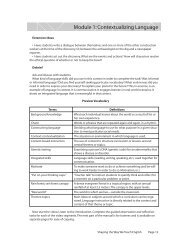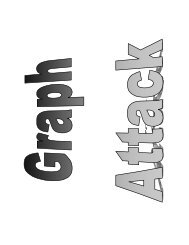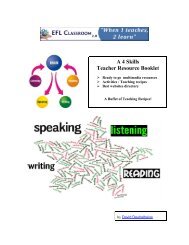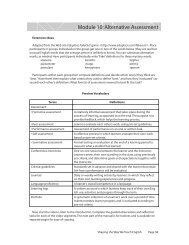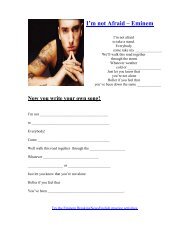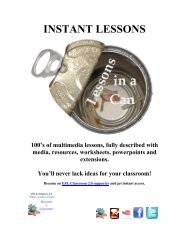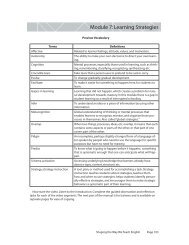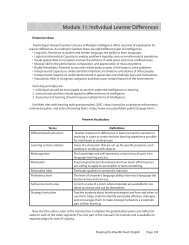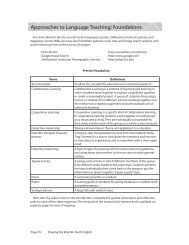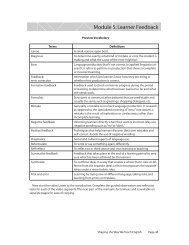Ten Audience Analysis Exercises - EFL Classroom 2.0
Ten Audience Analysis Exercises - EFL Classroom 2.0
Ten Audience Analysis Exercises - EFL Classroom 2.0
You also want an ePaper? Increase the reach of your titles
YUMPU automatically turns print PDFs into web optimized ePapers that Google loves.
<strong>Ten</strong> Oscar Competition Activities (Plus Five)<br />
This List of <strong>Ten</strong> is a bit different. In my thinking of the hoopla over the Oscars, I began<br />
wondering what would happen if instead of movies, we were talking about works of<br />
literature. So I've come up with an Oscar-type competition for the readings that a class<br />
has completed over the course of a school term. Some of the items in the competition can<br />
be separated by gender, as the Oscars are separated. I've listed them as different<br />
categories below, but you could collapse the categories. You could consider, for example,<br />
all characters rather than best male and best female. Likewise, while there are questions<br />
below for different genre, all the questions could be collapsed into a single question on<br />
the most outstanding piece of literature (rather than the best poem, the best play, and so<br />
on). There are two different ways to use these suggestions. Either way, it probably works<br />
best as an end-of-the-term activity.<br />
Option One: You might have an actual contest. Students could assemble in small groups<br />
to go through their readings for the semester or the year, searching for nominations. You<br />
might ask students to write objective support for their nominations and to include the<br />
equivalent of "film clips"--passages that show the strength of their nominations. The<br />
questions in the assignments below could guide groups of students gathering the<br />
nominations for a particular category. Once all the nominations are in place, you might<br />
have some time for campaigning, and eventually your students could vote. This<br />
assignment could work across classes if different sections have done the same readings.<br />
Option Two: Choose one of the questions below and use it as an exam prompt or a final<br />
paper. To help students, you might name five candidates for them to choose among. By<br />
listing choices, you can help students avoid freezing and wasting time trying to think of<br />
appropriate candidates, letting them focusing on making a choice and providing<br />
supporting details. Note: since the items are a bit redundant, I've rounded this list up to 15<br />
items. The extra five give me the chance to explain related options (such as best play,<br />
poem, novel and short story) while still including everything that I wanted to have on the<br />
list.<br />
1. Outstanding Male Character. Who was the most outstanding male character in<br />
the literature that we've read this term? Your choice should be a main character in<br />
any work that we've read. Think carefully about how the character you choose is<br />
explained, described, and developed. Be sure that you have clear criteria for what<br />
makes a male character "outstanding." Write a paper that explains your selection,<br />
supports your choice, and includes comparisons to other candidates that you<br />
considered. Your paper should show readers why the male character you've<br />
chosen really does stand out.<br />
2. Outstanding Female Character. Who was the most outstanding female<br />
character in the literature that we've read this term? Your choice should be a main<br />
character in any work that we've read. Think carefully about how the character



